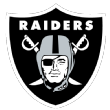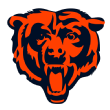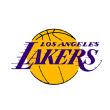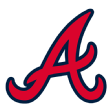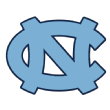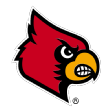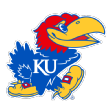Chicago White Sox manager Tony La Russa joins list of coaches to have multiple stints with the same team

Tony La Russa is back as the Chicago White Sox manager 34 years after his first stint on the South Side.
According to ESPN Stats & Information research, that time gap is the longest for any team in NFL, NBA, NHL or Major League Baseball.
La Russa first managed in Chicago from 1979-86. It was La Russa's first managerial job. He won American League Manager of the Year in 1983 when the White Sox won their division, but lost in the American League Championship Series to the Baltimore Orioles. After a 26-38 start in 1986, however, La Russa was fired.
He wasn't out of a job long, getting hired by the Oakland Athletics three weeks later. Since leaving Chicago, La Russa won three World Series titles: 1989 (Oakland), 2006 and 2011 (St. Louis Cardinals). La Russa returns to a White Sox team that made the playoffs this season but was bounced in the wild-card round by the A's.
NFL
Jon Gruden, Oakland Raiders (1998-2001, 2018-present)
Why he left:Despite leading the Raiders to back-to-back playoff appearances, uncertainty in Oakland led the Raiders to tradeGruden to the Bucs for multiple first-round draft picks. Gruden went on to win a Super Bowl in Tampa.
While he was away: The Raiders went to the Super Bowl in the first year post-Gruden but were awful in the years that followed. From 2003 to 2015, Oakland made the playoffs a whopping zero times, cycling through nine coaches in the process.
When he returned:The hype was real around Gruden's return to the Bay Area. But a 4-12 record, plus the trade of Khalil Mack to the Bears, in his first season back at the helm left Raiders fans frustrated.
Homecoming quote:"It was awesome," Gruden said of his first preseason game back. "I mean, I saw some recognizable faces that had got a little bit older, saw some old friends that mean a lot to me. Like I've said all along, it's a great responsibility. The nostalgia's worn off, so we have to do something with the opportunity."
How it went:The Raiders struggled in Gruden's first season back at the helm (4-12). Things were looking up in 2019 until the Antonio Brown saga engulfed the franchise in unwanted drama. Despite the chaos -- and large void left at the WR1 spot by Brown's departure -- Oakland improved to 7-9 with a second-place finish in the AFC West but still missed the playoffs.
Joe Gibbs, Washington Redskins (1981-92, 2004-07)
Why he left:Gibbs led the Redskins to three Super Bowl victories before retiring to focus on his NASCAR team.
While he was away: The Redskins went through six coaches in 12 years and missed the playoffs for a fourth straight season, going 5-11 with Steve Spurrier in the final season, before Gibbs returned.
When he returned: The Redskins went 6-10 in his first season back but were 10-6 the following season, helping bring credibility back to the franchise.
Homecoming quote: "Joe Gibbs helped define what the Washington Redskins stand for: integrity, hard work, determination, winning and championships. Who better to set our strategy and lead the Redskins back to championship glory?" -- owner Dan Snyder
How it went:Gibbs had a 30-34 record in the regular season, two playoff appearances and one playoff victory in his second stint with the team.
Art Shell, Los Angeles/Oakland Raiders (1989-94, 2006)
Why he left:Despite going 56-41 (including playoffs) and being named coach of the year in 1990 after leading the Raiders to a 12-4 record and an appearance in the AFC Championship Game, Shell was fired after going 9-7 in 1994. The Raiders went into that season as AFC favorites but missed the playoffs.
While he was away:In five full seasons under Shell, the Raiders had a winning record four times. In the 11 seasons he was away, they had only three winning seasons.Of the five head coaches hired after Shell was fired, only one (Gruden) compiled a winning record.
When he returned: Al Davis admitted that he made a mistake firing Shell and gave him another shot. But Shell's Raiders scored only 12 touchdowns on offense in 16 games, and players such as Jerry Porter and Randy Moss voiced their frustrations.
Homecoming quote: "It's coming home; it's coming home to finish what I started. It's like going out into the wilderness, and you travel around, you learn, you gather experience and new ideas, but yet you evolve as a person and as a coach, and I think I've done that." -- Shell, upon his return
How it went: Not well.Shell's return lasted just one season, and the Raiders went 2-14, setting a franchise record for losses and scoring futility.
George Halas, Chicago Bears (1920-29, 1933-42, 1946-55, 1958-67)
Why he left:One of the co-founders of the NFL, Halas was not only the coach in his first stint with the club but also a player -- and he took over as owner and handled running the franchise. He won a title in 1921 but retired from playing and stepped back from coaching in 1930, taking over as the sole owner in 1932. Halas entered the Navy after the advent of World War II in 1942 and left the club again.
While he was away: The Bears won another title in 1932, but Halas took over as coach the following year to cut costs while enduring the Great Depression. While he was serving in the Navy, the Bears won another championship in 1943.
When he returned: Halas'T-formation offense helped the Bears to titles in 1933, 1940 and 1941 upon his first return. He won another championship in his first year back on the sideline in 1946.After a couple years away in the '50s, hereturned to coaching for another decade, winning the last of his six championships in 1963.
Homecoming quote:"I suppose I began to realize this in one of our final games last season, when I started rushing after the referee who was pacing off a penalty, and it suddenly dawned on me that I wasn't gaining on him. I began to wonder whether the officials were speeding up or I was slowing down." -- Halas, while announcing his retirement after his last stint
How it went:"Papa Bear" had four stints as head coach of the Bears -- and won at least one championship during each stop -- but after the war, hedidn't enjoy the same success as before. He was inducted into the Hall of Fame in 1963 and retired in 1968. His initials (GSH) still adorn the sleeve of the Bears' jerseys today.
Other notables:Ted Marchibroda, Baltimore/Indianapolis Colts (1975-79, 1992-95); Chuck Knox, Los Angeles/St. Louis Rams (1973-77, 1992-94); Bud Grant, Minnesota Vikings (1967-83, 1985); Lou Saban, Buffalo Bills (1962-65, 1972-76); Sid Gillman, San Diego Chargers (1960-69, 1971)
NBA
Mike Brown, Cleveland Cavaliers (2005-10, 2013-14)
Why he left:Brown led the Cavs to their first Finals appearance in 2007 and was named coach of the year in 2009 after a franchise-best 66-16 season. After another 60-win season in 2010, the Cavs did not reach the Finals again and fired Brown despite his prolific regular-season record.
While he was away: LeBron James, who was coming off his second MVP, bolted Cleveland for Miami, and the Cavs missed the playoffs every year Brown was gone, never winning more than 24 games.
When he returned: Brown was rehired by the Cavaliers, replacing Byron Scott, with owner Dan Gilbert saying that firing Brown the first time was a mistake.
Homecoming quote: "It's not something I thought about on a daily basis, but things work in a mysterious way, and I'm excited to have the opportunity again." -- Brown upon being rehired.
How it went: Injuries and reported infighting torpedoed the Cavs, and Brown was fired after a 33-49 season.
Phil Jackson, Los Angeles Lakers (1999-2004, 2005-11)
Why he left:The Lakers were coming off a loss to the Pistons in the NBA Finals, and owner Jerry Buss decided that the trio of Jackson, Kobe Bryant and Shaquille O'Neal no longer worked.Jackson had coached the Lakers to three championships in five seasons.
While he was away: The Lakers had their worst season in 11 years, going 34-48 and missing the playoffs under the combination of Rudy Tomjanovich (who resigned midseason, citing health problems) and Frank Hamblen.
When he returned: The Jackson-Lakers reunion came just 361 days after his departure. Gone was O'Neal, who was traded after a long feud with Bryant.
Homecoming quote:"This is something I never thought could possibly happen. It's a pleasure to come back." -- Jackson, upon his return.
How it went: The Lakers returned to the playoffs in Jackson's first year back, but it took time for them to return to their previous glory. A trip to the Finals in 2008 ended in defeat, but Jackson added two more championship rings, winning back-to-back titles in 2009 and 2010.
Don Nelson, Golden State Warriors (1988-95, 2006-10)
Why he left:In his last full season, Nelson led the Warriors to a 50-32 record and a third-place finish in the Pacific Division. He resigned halfway through the following season as disputes with forward Chris Webber caused increasing tension.
While he was away: Webber was traded to the Wizards following his rookie season of 1993-94. After a brief stint with the Knicks,Nelson went on to a highly successful run in Dallas, inheriting one of the worst teams in the league and turning it into a perennial playoff power.
When he returned:Golden State went through eight coaches after Nelson's tenure ended in 1995 -- with none lasting more than two years -- and went 12 straight seasons without a winning record or a playoff berth. Nelson got the Warriors into the playoffs in his first season back.
Homecoming quote: "I'm happy for Nellie. I think this means that the Warriors will finally make the playoffs. Nellie is that good a coach." -- Dallas Mavericks owner Mark Cuban
How it went: Nelson went 42-40 in his first season back with Golden State, clinching a playoff berth on the final day of the regular season and shocking the top-seeded Mavericks -- the NBA's best regular-season team and Nelson's former employer -- in six games in the first round. It was Golden State's first playoff series win since 1991 and just the third time a No. 8 seed had won an opening-round series. The Warriors missed the playoffs in Nelson's final three seasons on the bench. Nelson never took a team to the NBA Finals, but he won a record 1,335 regular-season games and was voted coach of the year three times during his career.
Other notables: Flip Saunders, Minnesota Timberwolves (1995-2005, 2014-15); Lionel Hollins, Vancouver/Memphis Grizzlies (1999-2000, 2004, 2009-13); Paul Silas, Charlotte Hornets/Bobcats (1999-2002, 2010-12); Kevin McHale, Minnesota Timberwolves (2005, 2008-09); Brian Hill, Orlando Magic (1993-97, 2005-07); Dick Motta, Dallas Mavericks (1980-87, 1994-96); Cotton Fitzsimmons, Phoenix Suns (1970-72, 1988-92, 1996); Bernie Bickerstaff, Seattle SuperSonics (1985-89, 1989-90); Mike Fratello, Atlanta Hawks (1981, 1983-90); Gene Shue, Baltimore/Washington Bullets (1966-73, 1980-86) and San Diego/Los Angeles Clippers (1978-79, 1987-89); Lenny Wilkens, Seattle SuperSonics (1969-72, 1977-85); Red Holzman, New York Knicks (1967-77, 1978-82)
MLB
John Gibbons, Toronto Blue Jays(2004-08, 2013-18)
Why he left:Last-place Toronto was 35-39, riding a five-game skid and trailing AL East leader Boston by 10 1/2 games when Gibbons was fired. With the exception of an 87-75 season in 2006, the Blue Jays didn't finish any better than third in the AL East in his five years with the team.
While he was away: Cito Gaston, who helped the Jays win back-to-back World Series titles in 1992 and 1993, replaced Gibbons. The Blue Jays finished in fourth place in the AL East each season Gibbons was gone. Gibbons, meanwhile, served as a bench coach for the Royals for two seasons.
When he returned: Toronto had not made the playoffs since its 1993 World Series win, but the Blue Jays increased their win total in each of Gibbons' first three years back and have reached the playoffs twice since he returned.
Homecoming quote: "I don't know that there was anybody better in terms of managing a bullpen, connecting with the players, connecting with the front office, holding players accountable." -- Blue Jays GMAlex Anthopoulos
How it went: The Jays won the AL East in 2015, making it to the ALCS, in which they lost to the Royals in six games. They returned to the ALCS the following season and fell to the Indians in five games. Gibbons struggled thereafter, and was not retained after a 73-89 campaign in 2018.
Bobby Cox, Atlanta Braves(1978-1981,1990-2010)
Why he left: Following last-place finishes in each of his first two seasons,the Braves finished fourth in 1980 with their first record above .500 since 1974. Cox was fired by owner Ted Turner following a fifth-place finish in the 1981 strike-shortened season.
While he was away:Joe Torre took over in 1982 and led the Braves to their first division title since 1969 but was fired after the 1984 season. The team steadily declined from there, culminating in a 106-loss season in 1988.Cox went on to manage the Blue Jays, who steadily improved under his guidance and reached the ALCS in 1985, falling in seven games to the Royals.
When he returned: After serving as GM of the Braves since 1986, Cox named himself manager in 1990. The Braves, who had been down and out, were about to see their fortunes change.
Homecoming quote:"Bobby is probably the most qualified person, not just in this organization, but anywhere. He also has the best feel for this team since he largely is the one most responsible for putting it together." -- Team president Stan Kasten
How it went: Let's say the second time was a charm. The Braves went from last place to first and went to the World Series in 1991, falling in seven games to the Twins. They won the division a record 14 straight times between 1991 and 2005, winning the NL pennant five times in that span and adding a World Series championship in 1995. A four-time manager of the year, Cox retired with the fourth-most wins (2,504 and 2,149 with the Braves) by a manager in 2010 and entered the Hall of Fame in 2014.
Billy Martin, New York Yankees(1975-78, 1979,1983, 1985, 1988)
Why he left: Martin had five stints managing the Yankees -- and had a winning record in each --but was nonetheless fired or forced to resign by team owner George Steinbrenner on a fairly regular basis. Martin resigned before he could be fired in 1978 after ongoing drama caused turmoil throughout the organization. He was fired again as manager after going 91-72 in 1983, but he took on a scouting role with the team. Martin was relieved of his managing duties after a 97-win season in 1985, but he received a raise to stay with the organization out of fear that he might leave for another job. Martin was again fired in 1988 after a series of issues on and off the field.
While he was away: The Yankees won the World Series in 1978 under Bob Lemon, but Lemon was fired after a slow start the following season, and Martin, who led the Yankees to a World Series title in 1977 after being swept in 1976, was rehired. The Yankees reached the World Series again in 1981 under Lemon but lost to the Dodgers in six games. Between his second and third stints with the Yankees, Martin managed the A's and won two AP manager of the year awards. He even met the Yankees in the 1981 ALCS, in which Oakland was swept in a best-of-five series.
When he returned: Martin's first return didn't last long. He was fired by Steinbrenner after getting into a bar fight with a marshmallow salesman. Despite winning records in each of his returns, Martin never lasted more than one season as manager after his initial hiring.
Homecoming quote: "All I know is [as Yankees manager], I pass people on the street these days, and they don't know whether to say hello or to say goodbye." -- Martin, upon his 1983 rehiring
How it went: In total, Martin went 556-385 in his eight seasons managing the Yankees, winning two pennants and one World Series. But repeated confrontations and issues on and off the field derailed his managerial career.
Other notables: Cito Gaston, Toronto Blue Jays (1989-97, 2008-10); Earl Weaver, Baltimore Orioles (1968-82, 1985-86); Bob Lemon, New York Yankees (1978-79, 1981-82); Ralph Houk, New York Yankees (1961-63, 1966-73); Bucky Harris, Washington Senators (1924-28, 1935-42, 1950-54) and Detroit Tigers (1929-33, 1955-56)
NHL
Ken Hitchcock, Dallas Stars(1995-2002, 2017-18)
Why he left: Hitchcock led the Stars to a first-place finish in the Central Division in his first full season and took them to the conference finals the following season. Then, in the 1998-99 season, Hitchcock led the Stars to the Presidents' Trophy with a51-19-12 record and went on to win the Stanley Cup. The Stars made it to the Cup Final the next season but lost to the Devils. Hitchcock was fired as coach a season and a half later amid strife between players and management.
While he was away: Hitchcock went on to coach the Flyers, Blue Jackets and Blues, accumulating nine playoff appearances and two trips to the conference finals. The Stars made it to the playoffs in each of the next five seasons, reaching the conference finals in 2007-08, but they have made it to the postseason only twice since.
When he returned:Optimism was the word. Hitchcock said he saw "something special" in this team, but it didn't pan out. The Stars went 42-32-8, finished sixth in the Central and missed the playoffs.
Homecoming quote: "First of all, this is an emotional day for me because this is like coming home. This means the world for me." -- Hitchcock, upon his return
How it went:The excitement about Hitchcock's return didn't translate to success on the ice, as the Stars battled injuries and a rough stretch in the second half of the season and missed the playoffs despite a 92-point season. Hitchcock announced his retirement after the season, finishing with 823 career regular-season wins, good for third-most all time.
Al Arbour, New York Islanders (1973-86, 1988-94, 2007)
Why he left:After a series of playoff disappointments, Arbour's Islanders won four Stanley Cups in a row, beginning with the 1979-80 season. The Islanders won 19 straight playoff series before falling in the 1984 Cup Final. Arbour retired from coaching following the 1985-86 season and accepted a position in the Islanders' front office.
While he was away: The Islanders continued their long streak of playoff appearances but lost in the division finals in the 1986-87 season and in the division semifinals in 1987-88.
When he returned: Following a disappointing start to the 1988-89 season, the Islanders fired Terry Simpson, and Arbour returned as head coach. The Islanders went on to miss the playoffs for the first time since the 1973-74 season.
Homecoming quote: ''I never had any thought of coming back as coach, and I did have second thoughts when [GM] Bill [Torrey] asked me. My heart was racing, and it still is.'' -- Arbour, upon his 1988 return
How it went: The Islanders returned to the playoffs in Arbour's first season back but missed out on the postseason the next two years. They made one more deep run under Arbour in 1993, when they fell in the conference finals.Arbour retired after the 1993-94 season but was brought back in 2007 at age 75 to coach his1,500th game for the Islanders.He is the only coach in NHL history to coach 1,500 games for a team.
Art Ross, Boston Bruins(1924-34, 1936-39, 1942-45)
Why he left: Ross, who came up with the team name and was the Bruins' first coach, built a Stanley Cup winner in less than five years. He was also the first coach to replace his goaltender with an extra attacker. Ross stepped away from the bench in 1934 to focus on managing the team and again in 1939 after winning his second Stanley Cup.
While he was away: There were rumors that coachFrank Patrick was not as strict on his players as Ross wanted, as well as allegations of heavy drinking on the part of the coach. The Bruins lost both years in the playoffs to the Maple Leafs, and Patrick was fired and Ross returned as head coach. After Ross stepped aside the second time, the Bruins won another Cup in the 1940-41 season underCooney Weiland.
When he returned: Ross led the Bruins to a Stanley Cup championship in his third season back on the bench. He made it back to the Final in his last stop with the team, but the Bruins were swept by the Red Wings.
Homecoming quote: "His two sons served overseas and had excellent records. I figured anybody who could rear two boys like that must be all right." -- Conn Smythe, on patching up his long-standing feud with Ross
How it went:Ross won a Stanley Cup in his first reunion and made another trip to the Cup Final in his last stint with the Bruins. All told, he coached two Cup winners and reached the Final three other times. Ross was inducted into the Hall of Fame in 1949 and retired as GM of the Bruins in 1954. The Art Ross Trophy is given to the leading scorer in the regular season.
Other notables:Randy Carlyle, Anaheim Ducks (2005-12, 2016-current); Claude Julien, Montreal Canadiens (2003-06, 2016-current); Michel Therrien, Montreal Canadiens (2000-03, 2012-17); Ted Nolan, Buffalo Sabres (1995-97, 2013-15); Jacques Lemaire, New Jersey Devils (1993-98, 2009-11); Larry Robinson, New Jersey Devils (2000-02, 2005); Glen Sather, Edmonton Oilers (1976-89, 1993-94); Harry Sinden, Boston Bruins (1966-70, 1979-80, 1984-85); Cecil Hart, Montreal Canadiens (1926-32, 1936-39); Newsy Lalonde, Montreal Canadiens (1917-22, 1932-35)
College football
Brady Hoke, San Diego State Aztecs (2009-10, 2020-present)
Why he left:Hoke posted a 13-12 record in his first stint as head coach of the Aztecs in 2009 and 2010 before leaving to take the Michigan job following Rich Rodriguez's firing. Hoke has an overall record of 78-72 as coach at Ball State, San Diego State, Michigan and Tennessee (where he served as interim coach for the final two games of 2017).
While he was away: Before retiring, Rocky Long led the Aztecs to nine straight winning seasons and three Mountain West conference titles, including four 10-win seasons in the past five years. Long left as the program's second-winningest coach (82), behind Don Coryell.
When he returned: Jan. 8, 2020.
Homecoming quote: "You never get to do something twice that you really want to do in life. I was very fortunate, Coach Long bringing me back, and I can assure you we are going to keep going the direction we are going."
How it's going: After delaying the start of the 2020 season due to Mountain West Conference coronavirus protocols, the Aztecs started the season on Oct. 24. Hoke got a 34-6 win to start his reunion tour.
Mack Brown, North Carolina Tar Heels (1988-1997, 2019-present)
Why he left:Mack Brown led the Tar Heels to a 69-46-1 record and six bowl appearances. He came to UNC from Tulane and, after consecutive 1-10 finishes, finished 6-4-1 in 1990 -- then never finished with a record below .500 in the rest of his tenure in Chapel Hill. After leading the Tar Heels to back-to-back 10-win seasons in 1996 and '97, Brown left for Texas, where he coached from 1998 to 2013 and won a national title when the Longhorns upset USC in the Rose Bowl to end the 2005 season.
While he was away: Let's just say there wasn't much to write home about, and what there was, it wasn't good. UNC suffered some dreadful seasons, with a few public relations nightmares on the side.
When he returned:On Nov. 27, 2018, the school announced that it was rehiring Mack Brown as head coach. Brown had spent the previous five years as an analyst for ESPN.
Homecoming quote:"We've got unfinished business."
How it went:In his first season back at UNC in 22 years -- and first year coaching in six years -- his team went 6-6 and became bowl-eligible for the first time since the 2016 season. The Heels also nearly upset reigning national champion Clemson. In a win over Duke, Brown became the school's all-time leader in wins (73), surpassing his predecessor, Dick Crum. The six wins in his first season back were one more than the team had the previous two seasons combined under Larry Fedora. Brown led the team to its first bowl victory in six years with a 55-13 thumping of Temple on Dec. 27 in the Military Bowl.
Randy Edsall, Connecticut Huskies (1999-2010, 2017-present)
Why he left: After leading UConn to the 2011 Fiesta Bowl, Edsall did not speak to his players or fly back with the team after its loss to Oklahoma. Instead, he flew to Maryland, where he was introduced as the Terrapins' coach.
While he was away:UConn went through three coaches and six consecutive losing seasons. The Huskies had one bowl appearance after the 2015 season, albeit in a 6-7 year under Bob Diaco. Edsall had only two winning seasons at Maryland and was fired after a 2-4 start in 2015.
When he returned: Edsall,who was the career leader in wins at UConn with 74 and had five bowl appearances in 12 seasons, agreed to a five-year contract and apologized for the way he left the program. There was also controversy after he returned about the late withdrawal of a scholarship offer and a violation of state nepotism laws when he hired his son.
Homecoming quote:"Almost six years ago, I made one of the worst decisions in terms of how I left the University of Connecticut. That is something I have to live with, and I've lived with. I'm not perfect. Everybody makes a mistake. I regret it. It's something that has weighed heavily on me over the years, and I just hope that I will be able to earn the trust back from all the wonderful fans." -- Edsall, upon his return
How it went: UConn went 3-9 (2-6 in AAC) in Edsall's first season back. Edsall helped take UConn from the FCS to FBS and all the way to the Fiesta Bowl in his first tenure and faces another tall task in his second stint. The Huskies went 1-11 in 2018, setting a number of marks for defensive futility.
Bill Snyder, Kansas State (1989-2005, 2009-18)
Why he left:Snyder retired in 2005 after K-State's second straight losing season, finishing 136-68-1 in his first tenure. K-State had won only 130 games the previous 51 years. In 1998, he led the Wildcats to an 11-0 regular-season record and their first No. 1 ranking -- 10 years after Sports Illustrated called the football program the worst in the country.In the 2003 season, K-State won the Big 12 championship, its first major conference title since 1934.
While he was away: The Wildcats had one winning season and one bowl appearance (a loss in the Texas Bowl) under Ron Prince, a period during which K-State renamed its football stadium Bill Snyder Family Football Stadium. Prince was fired near the end of the 2008 season.
When he returned:After going 6-6 in his first season back, Snyder led K-State to eight straight bowl games, including a trip to the Fiesta Bowl after the 2012 season. The Wildcats started that season 10-0 and were ranked No. 1 until a loss to Baylor. Snyder was inducted into the College Football Hall of Fame in 2015.
Homecoming quote:"This is not just a Bill Snyder thing. This is a family thing and a Wildcat family thing. We need everybody to be involved in caring, and in a genuine and a real way. I'm just pleased to be here with them again." -- Snyder, upon his return
How it went: Though Snyder went 5-7 in 2018, his magic made K-State relevant again.Kansas State was 299-510 in 93 years of play before he took over the first time and had been to one bowl game. The Wildcats had not won a conference title since 1934, had only two winning seasons in the previous 34 years and were riding a 27-game winless streak. Under Snyder, they went to 19 bowl games. K-State only had one season under .500 once Snyder returned.
Bobby Petrino, Louisville (2003-06, 2014-18)
Why he left: After spending four years at Louisville and turning the Cardinals into a national power -- he led them to 11 wins in 2004 and 12 wins in 2006 -- Petrino accepteda five-year, $24 million contract in 2007 to go to the NFL and coach the Atlanta Falcons.
While he was away:With the Falcons at the bottom of the NFC South at 3-10, Petrino abruptly resigned to take a job as the head coach at Arkansas, where he spent four seasons before being fired after a motorcycle accident that revealed an inappropriate relationship with a university staffer. Meanwhile at Louisville, the Cardinals floundered underSteve Kragthorpe for three seasons but eventually built back up under Charlie Strong, who spent four seasons there and went 11-2 in 2012 and 12-1 in 2013.
When he returned:Following his stint at Arkansas and one year at Western Kentucky, Petrino returned to Louisville after Strong took the head-coaching job at Texas. Petrino signed a seven-year, $24.5 million deal.
Homecoming quote:"I made mistakes, both professionally and personally. "That's something I'm not going to do again. ... My first mistake was leaving here." -- Petrino, upon his return
How it went: Louisville went 36-26 in Petrino's second stint, but was fired amid a 2-8 season in 2018 that also included an 0-7 record in the ACC.
Other notables: Clay Helton, USC (2013-interim, 2015-present); Dennis Franchione, Texas State (1990-91, 2011-15); Barry Alvarez, Wisconsin (1990-2005, 2012, 2014); Bo Pelini, Nebraska (2003-interim, 2008-14); Mike Riley, Oregon State (1997-98, 2003-14); Chris Ault, Nevada (1976-92, 1994-95, 2004-12); Phillip Fulmer, Tennessee (1992-interim, 1993-2008); Dennis Erickson, Idaho (1982-85, 2006); John Robinson, USC (1976-82, 1993-97); Johnny Majors, Pittsburgh (1973-76, 1993-96); Bill Walsh, Stanford (1977-78, 1992-94); Frank Leahy, Notre Dame (1941-43, 1946-53); Robert Neyland, Tennessee (1926-34, 1936-40, 1946-52); Walter Camp, Stanford (1892, 1894-95)
College basketball
Billy Tubbs, Lamar Cardinals (1976-80, 2003-06)
Why he left: Tubbs led the Cardinals to their first NCAA Division I basketball tournament in 1979, and they fell in the second round to eventual champion Michigan State. Tubbs took Lamar to the Sweet 16 the next season, became a hot coaching commodity and eventually left for Oklahoma.
While he was away: Lamar's success continued under Pat Foster, who made two NCAA tourney trips in his six years at the helm. Things didn't go as well from there, as Lamar went through five coaches after Foster's exit and made only one postseason appearance. Meanwhile, Tubbs took over an OU team that had one NCAA tournament win in 33 years. By 1985, the Sooners were a No. 1 seed in the NCAA tournament. In 1988, they made it to the national title game. He went on to have a fairly successful run at TCU as well before returning to Lamar.
When he returned:Lamar hadn't won the Southland in 12 years and hadn't made it to the NCAA Tournament since 2000. The Cardinals went 11-18 in Tubbs' first season back. It was Tubbs' first losing season since his first year at Oklahoma.
Homecoming quote: "My athletic director feels we should be winning the conference and going to the NCAA playoffs, or he'll fire my butt." -- Tubbs, who was also Lamar's AD at the time
How it went: After a rare losing season in his first year back, Tubbs led Lamar to an 18-11 record in 2004-05 and a 17-14 record in 2005-06. Tubbs resigned as head coach in 2006 after putting together a641-340 career record but remained as athletic director. He retired in 2011.
Lou Carnesecca, St. John's (1965-70, 1973-92)
Why he left:Carnesecca never won fewer than 18 games and was 104-35 overall in his first stint with St. John's. He jumped to the professional ranks in 1970 and coached the New York Nets of the ABA for three seasons.
While he was away:St. John's went 56-27 under Frank Mulzoff and made one tournament appearance. Carnesecca led the 1971-72 Nets to the ABA Finals, in which they lost to the Indiana Pacers.
When he returned:Carnesecca led St. John's to at least 20 wins in each of his first seven seasons back and advanced to the Elite Eight in the 1978-79 season. The team made it to the Sweet 16 in 1983 andreached the Final Four in 1985, with Chris Mullin and Mark Jackson leading the way.
Homecoming quote:"The pros were a great experience for me. I heartily believe that all college coaches should spend one year in the pros. It's a great eye-opener, especially for those who have Napoleonic tendencies." -- Carnesecca, upon his return
How it went: Carnesecca went 422-165 in his second tenure at St. John's, posting 15 20-win seasons (including two 30-win campaigns in 1985 and '86) and reaching the NCAA tournament 15 times. Carnesecca retired after the 1991-92 season, one year after St. John's reached the Elite Eight again. Overall, he averaged more than 20 wins per season for his career and compiled a 526-200 record (18 20-win seasons). St. John's reached the postseason in each of his 24 seasons (18 NCAAs and six NITs). Carnesecca was inducted into the Basketball Hall of Fame in 1986.
Phog Allen, Kansas Jayhawks (1907-09, 1919-56)
Why he left:Allen had taken the reins from James Naismith, who is known as the inventor of the game. After going 18-6 in 1907-08 and 25-3 in 1908-09, Allen took a hiatus to study osteopathic medicine at Kansas College of Osteopathy.
While he was away: W.O. Hamilton took the helm and led Kansas to an 18-1 record in his first season. After going 33-2 in two seasons from 1913 to 1915, Hamilton's Jayhawks settled into mediocrity, and after a 7-9 season in 1918-19, Allen returned as Kansas' head coach.
When he returned:From 1921 to 1927, Allen's teams never lost more than three games and finished atop the Missouri Valley Intercollegiate Athletic Association each season. Kansas had the best record in its conference 11 times in 13 years from 1930 to 1943 and finished as NCAA runners-up in 1939-40. Under Allen, who played a key role in the creation of the NCAA tournament, the Jayhawks were national champions in 1951-52 and finished as runners-up the following season.
Homecoming quote:Allen, when told by Naismith that basketball couldn't be coached: "Well, you can certainly teach free throwing. And you can teach the boys to pass at angles and run in curves."
How it went:Allen posted 33 winning seasons in his second run at Kansas and retired with a 746-264 record, which at the time was the record for most coaching wins in college basketball history. During his tenure with the Jayhawks, Allen coached Dutch Lonborg, Adolph Rupp, Ralph Miller and Dean Smith -- all future Hall of Fame coaches. He also helped get basketball accepted as an Olympic sport in 1936 and coached the U.S. to the gold medal in the 1952 Summer Games. Allen was part of the inaugural class in the Basketball Hall of Fame in 1959, andAllen Fieldhouse is named in his honor.
Other notables:Dave Leitao, DePaul Blue Demons (2002-05, 2015-present); Norm Sloan, Florida Gators (1960-66, 1980-89); Joe Lapchick, St. John's (1936-47, 1956-65)


